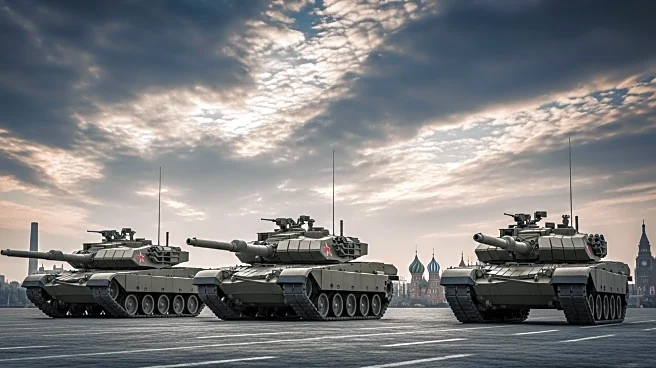What's Happening?
Chinese President Xi Jinping hosted a military parade in Beijing, attended by Russian President Vladimir Putin and North Korean leader Kim Jong Un. The event marked the 80th anniversary of Japan's surrender in World War II. The parade featured advanced military hardware, including drones and missiles, showcasing China's growing military capabilities. The gathering of these leaders is seen as a significant geopolitical event, highlighting the cooperation among China, Russia, and North Korea, which some analysts refer to as an 'axis of upheaval.'
Why It's Important?
The parade signifies a strengthening of ties between China, Russia, and North Korea, potentially altering the balance of power in international relations. This collaboration could lead to increased tensions with Western countries, particularly the United States, as these nations challenge the existing global order. The display of military prowess serves as a message to other countries about China's strategic capabilities and its role as a major global player.
What's Next?
The event may lead to further diplomatic and military cooperation among the participating countries, potentially impacting regional security dynamics. Western nations may need to reassess their foreign policy strategies in response to this emerging alliance.
Beyond the Headlines
The parade reflects China's efforts to assert its historical narrative and position itself as a leader in global affairs. This may influence domestic and international perceptions of China's role in world history and its current geopolitical ambitions.








